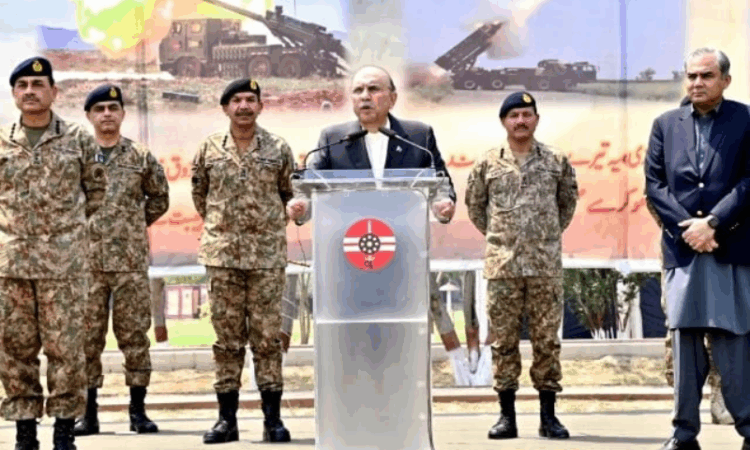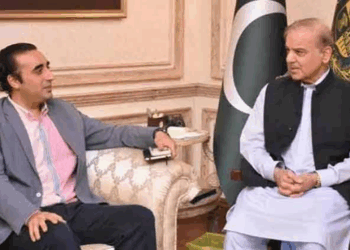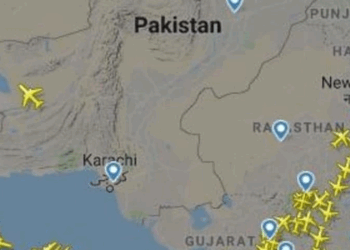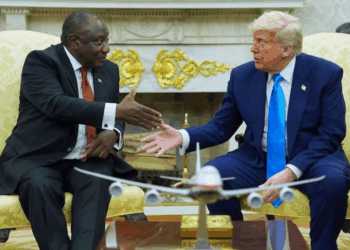Gujranwala, May 17, 2025: President Asif Ali Zardari lauded the Pakistan Armed Forces for their courage, professionalism, and steadfast resolve in repelling recent Indian aggression, describing their actions as a shining example of national spirit and military excellence.
During a visit to Gujranwala Cantonment on Saturday, President Zardari praised the armed forces for their decisive role in Marka-e-Haq, a military operation that successfully countered unprovoked Indian hostilities. “The sons of the soil, fortified by the spirit of the nation, stood their ground and thwarted hostile designs with exceptional valor,” he said.
According to a statement by the Inter-Services Public Relations (ISPR), the President paid solemn tribute to both military and civilian martyrs who laid down their lives in defense of the homeland. He called their sacrifice a sacred trust and a source of enduring national pride.
“History will bear witness to how, within hours, the Pakistan Armed Forces responded with unmatched precision and resolve, sending a clear message of our nation’s strength, resilience, and unity,” he remarked.
During his interaction with officers and troops, President Zardari commended their high morale, combat readiness, and unwavering dedication to duty. He extended heartfelt congratulations on the successful execution of Operation Bunyanum Marsoos and expressed profound pride in the defenders of Pakistan.
He emphasized that the people of Pakistan revere their armed forces as the true custodians of national honor and sovereignty.
President Zardari was received at Gujranwala Cantonment by Chief of Army Staff General Asim Munir. He was accompanied by Interior Minister Mohsin Naqvi, with senior commanders from the Mangla and Gujranwala Corps also present.
The President’s visit followed a series of high-level engagements with the armed forces amid heightened tensions with India. Earlier this week, he visited soldiers and civilians injured in the recent conflict at the Combined Military Hospital (CMH) in Rawalpindi.
Prime Minister Shehbaz Sharif also visited Pasrur Cantonment and the Pakistan Air Force’s operational base in Kamra, where he met with troops, commended their “combat excellence,” and reaffirmed Pakistan’s unwavering resolve to safeguard its sovereignty.
The latest escalation between Pakistan and India began on April 22, when a deadly attack in Pahalgam claimed 26 lives. India swiftly blamed Pakistan, a charge Islamabad categorically denied.
Tensions surged on April 23 as India responded with a series of hostile measures, including suspending the 65-year-old Indus Waters Treaty, cancelling visas for Pakistani citizens, shutting the Wagah-Attari border, ordering the closure of the Pakistan High Commission in New Delhi, and reducing diplomatic staff on both sides.
Violence further escalated on May 7, when missile strikes hit six cities across Punjab and Azad Jammu and Kashmir (AJK), destroying a mosque and killing dozens of civilians, including women and children.
In a rapid military response, Pakistan shot down multiple Indian warplanes, including three Rafale jets. On May 10, Indian missile strikes targeted Pakistani airbases, prompting Islamabad to launch Operation Bunyanum Marsoos, which inflicted significant damage on Indian military infrastructure, including missile storage facilities and airbases.
A ceasefire was reached by Saturday evening after intense overnight diplomacy. The agreement was announced by U.S. President Donald Trump and subsequently confirmed by Pakistan’s Foreign Minister Ishaq Dar and India’s Foreign Secretary.








